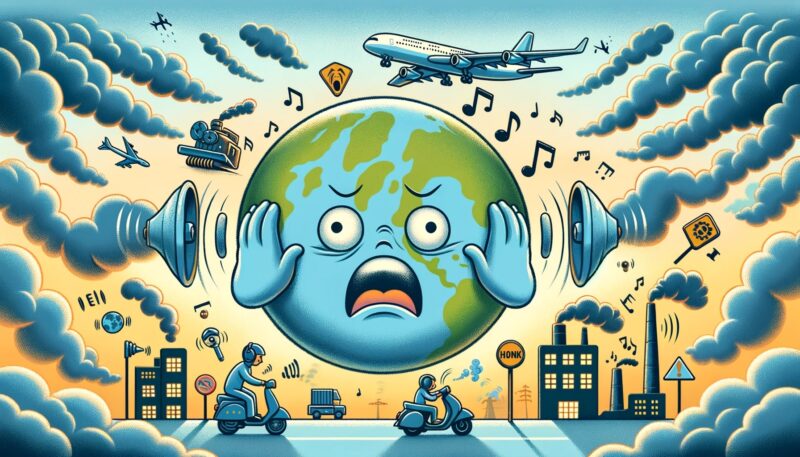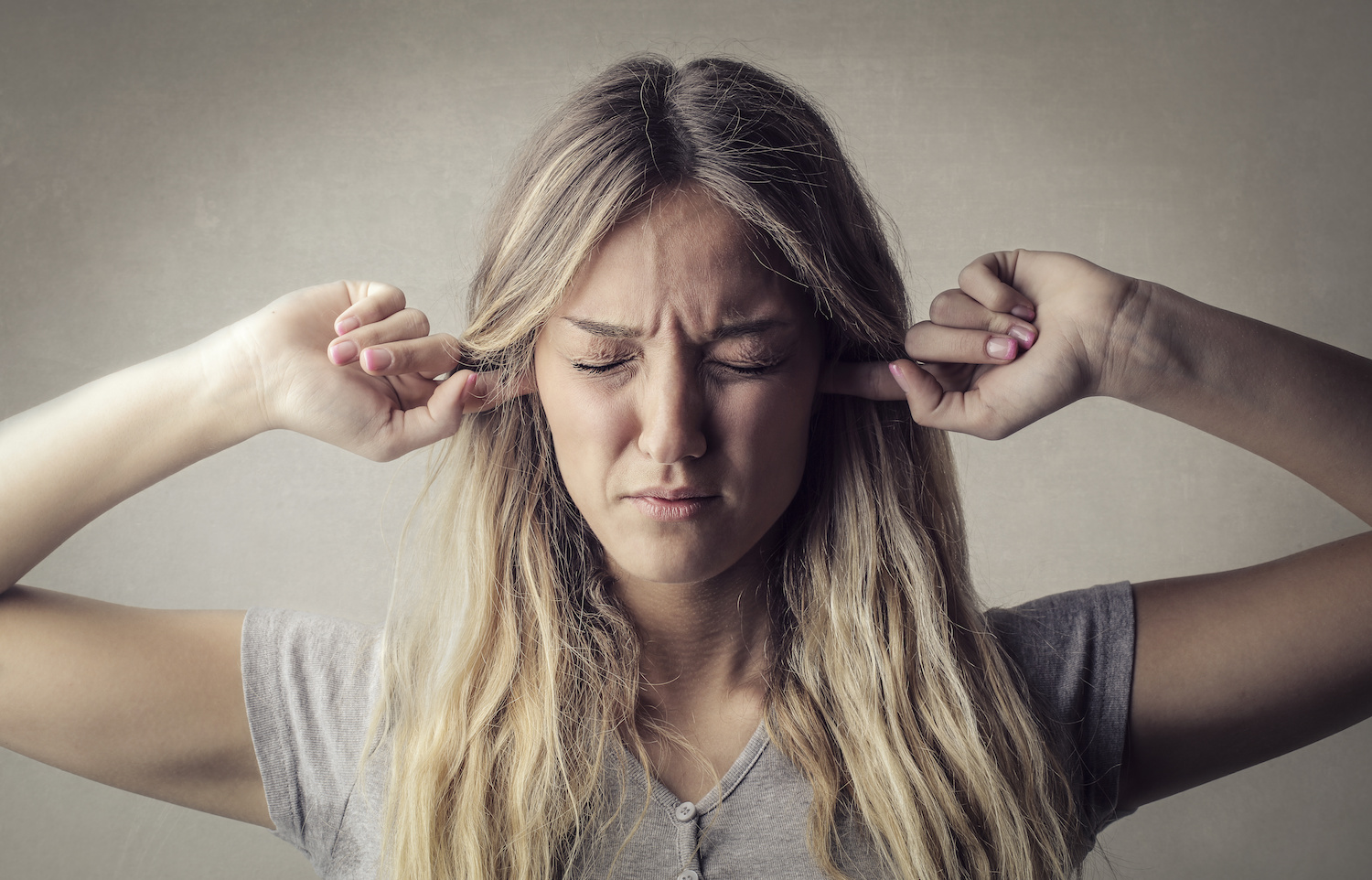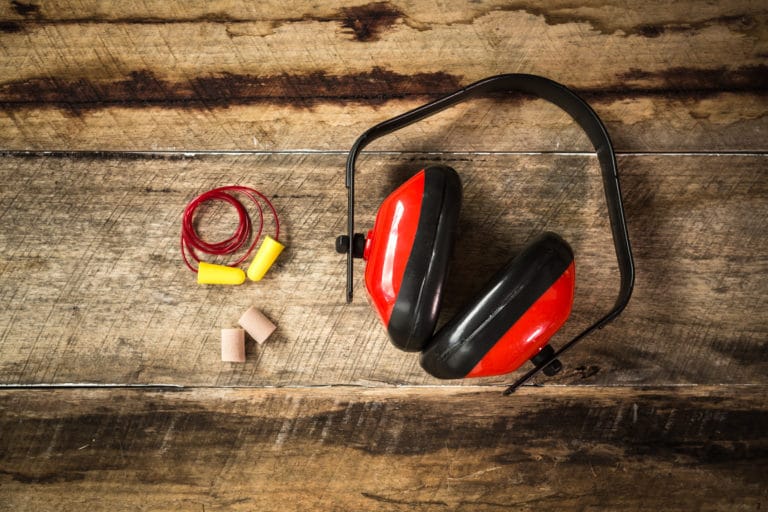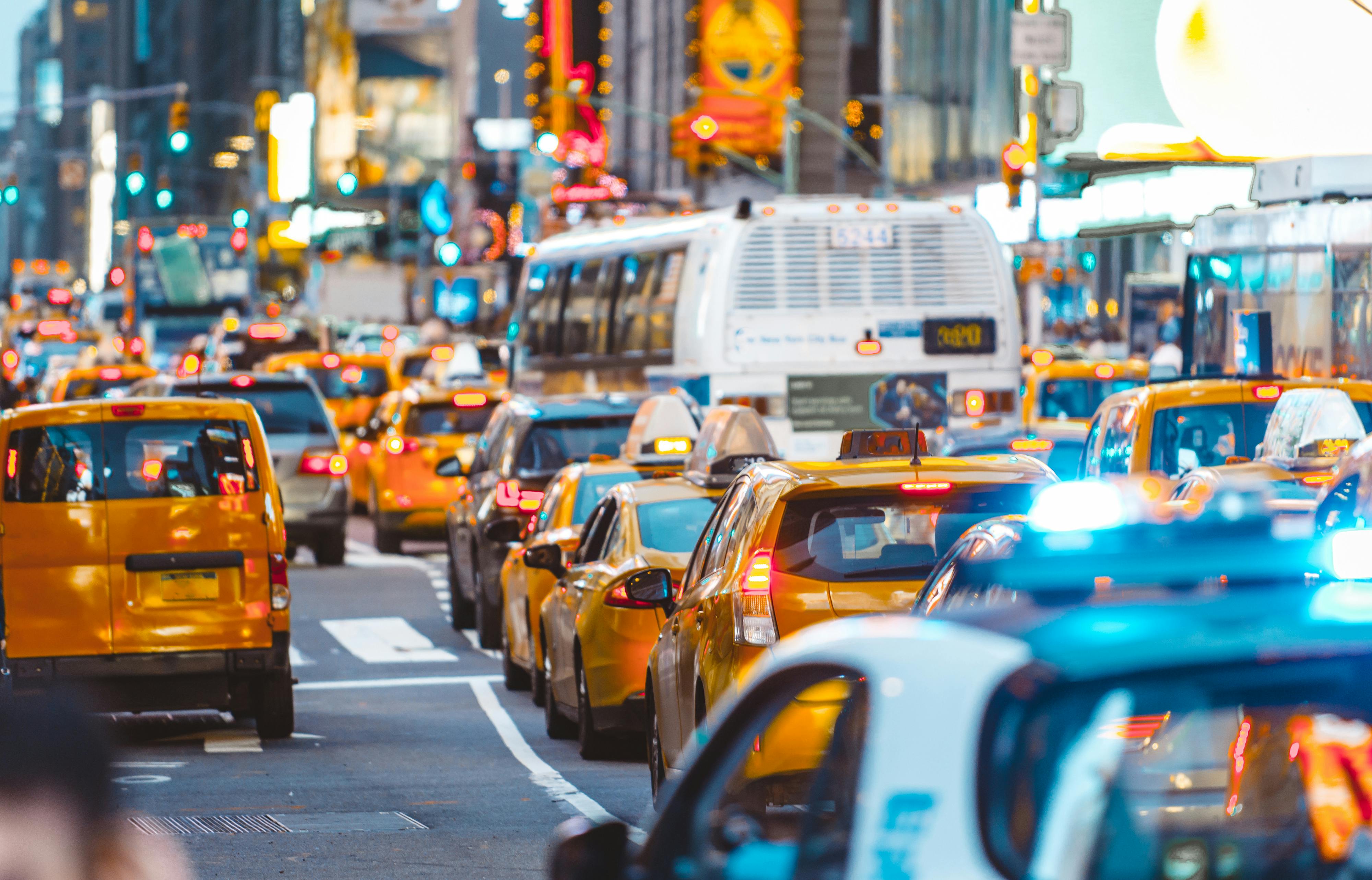Noise Pollution
Noise pollution harms more than your hearing From your heart to your brain, chronic exposure to loud noises can do a number on your health.
From a blackbird’s song to the rumble of a passing train, sounds are produced by vibrations moving through the air, ground, or water in invisible waves.
When those soundwaves enter your ear, they make tiny membranes, bones, and hair cells inside vibrate, which triggers electrical signals that your brain interprets as sound.
But when that sound is extremely loud or frequent it can actually harm the human body.
You can be exposed to so much sound that it destroys your hearing,” says Erica Walker, an epidemiologist at Brown University.
These loud or repetitive sounds don’t just damage the membranes, hair cells, or nerves that allow us to hear—they can also disturb our sleep and trigger a cascade of problems throughout the body.
“Mood disruption leads to your body activating a fight-or-flight response,” says Walker. “So it’s the same response that is triggered when you are in a dark alley and you see a ferocious pit-bull, and your body is saying, ‘Either I need to run from this, or I need to fight this.’”
The Centers for Disease Control and Prevention estimates that as many as 22 million Americans are exposed to noise pollution at work each year—and studies show that some communities are more susceptible than others, too. Fortunately, scientists are learning more about how sound can impact human health all the time.
The power of noise
So, how loud is too loud?
In the United States, the National Institute for Occupational Safety and Health (NIOSH) regulates how loud a workplace can be on a given day. In general, NIOSH recommends that workers not be exposed to noises louder than 85 dBA—about the same level as lawnmowers, vacuums, and power tools—for longer than eight hours. Put another way, sounds in this range may require you to shout to be heard by someone just three feet away.
As volume increases, the length of time you’re exposed to it should decrease. For instance, for sounds that approach 100 dBA—such as a construction site—NIOSH stipulates just 15 minutes of exposure without ear protection.
It’s one thing to leave a concert with ringing ears or to be surprised by a sudden loud noise, but how does that actually affect your health?
“When that stress response is stimulated, you start to breathe faster. Your heart rate starts to increase. Your body’s releasing all of these hormones,” says Walker, who also runs Brown University’s Community Noise Lab.
If this happens once or twice, it might not be that big of a deal, says Walker, but over time, constant stimulation of your body’s stress response, or chronic noise exposure, can make you more prone to serious health outcomes.
“A lot of the literature is in the cardiovascular realm,” she says. “Hypertension, myocardial infarction, cardiovascular-related mortality.”
According to one estimate, chronic noise exposure leads to 48,000 new cases of heart disease in Europe each year and affects the quantity and quality of sleep for 6.5 million people. Noise can raise your blood pressure and heart rate even while you sleep, which can also be associated with lower birth weights in infants or Type 2 diabetes.
But there can also be a psychological aspect, especially if people feel like they have no control over the noise they are exposed to. This can lead to mental health harms, such as increased anxiety and depression, says Walker.
The importance of sleep
You might think the body’s need for sleep is self-explanatory—go without it for a day and see how lousy you feel. But sleep’s importance is probably even more critical than you think.
“Sleep is believed to help with learning and memory consolidation, cellular and tissue growth, as well as repair,” says Chandra Jackson, principal investigator at the National Institutes of Health, in an email.
Sleep is also when our body clears toxins from the brain and bolsters the immune system, she adds. Likewise, when sleep is disrupted, it can lead to an array of physiological effects, such as blood vessel dysfunction and changes in glucose metabolism and appetite regulation.
Interestingly, noise’s ability to interfere with our sleep is probably what kept humans safe through our evolutionary history. Even though you are asleep, your ears are still actively scanning the night for potential threats.
“Nighttime noise can fragment sleep structure by inducing awakenings, creating difficulties with falling asleep, and shifting to lighter, less restorative sleep,” says Jackson.
Similarly, chronically disrupted sleep is associated with a variety of negative health outcomes, including obesity, diabetes, hypertension, cardiovascular disease, and poorer cognitive function, she says.
Of course, when it comes to sleep, noises don’t have to be nearly as loud to cause problems. According to Jackson, sounds as low as 30 to 40 dB can cause a person to toss and turn or wake up. However, sounds in this range—which can be as quiet as a soft whisper—are only associated with modest health effects, she says.
It’s really when you see night noises in the range of 40 to 55 dB or more that adverse health effects are observed.
The human element
The interesting thing about noise pollution is that it can also be highly subjective.
“I’ve seen many different things influence what a person considers sound versus what they consider noise,” says Walker, who works with communities to assess and address sources of noise. “That is a function of life experiences, culture, and a bunch of different things. I think because we are all unique individuals, we just process things differently.”
“One person’s peace is another person’s chaos,” says Walker.
At the same time, scientists are beginning to collect evidence that some communities and populations are subjected to noise more frequently than others. For instance, one 2017 study found that both daytime and nighttime noise levels tended to be higher on city blocks with higher proportions of non-white and lower-socioeconomic status residents.
Scientists are also learning that loud areas aren’t always where you’d expect.
“I do a lot of work in rural settings, and they can be just as loud, if not louder, than urban areas, and for very different reasons,” says Walker.
For instance, we’ve become accustomed to receiving goods and services overnight, but the infrastructure and traffic required to make that distribution happen increasingly means sacrificing peace and quiet.
“A lot of these rural areas are getting the distribution plants,” says Walker. “And those are operating 24/7.”
Protecting yourself from noise pollution
So how can you avoid succumbing to noise pollution? The first solution is obvious.
Earplugs can dramatically reduce the impact of loud noises by blocking sound waves before they can penetrate the inner ear. Noise-cancelling headphones produce a similar effect, but by emitting sound waves that complement and cancel out the noises around you. Walker says such devices also assist with the psychological effects of noise pollution, because they help people regain a sense of control over their surroundings.
However, when listening to loud music, those same headphones can also deliver sound waves at levels strong enough to cause injury, cautions Walker.
“I’ve seen so many kids with tinnitus,” says Walker, referring to the sound-induced condition where one’s ears sound like they’re ringing, buzzing, or roaring. “Tinnitus is something you get after 20 years at the plant, or 15 years in the military. And these kids that are 10 years old have tinnitus.”
The World Health Organization estimates that 1.1 billion young people between the ages of 12 and 35 are at risk of hearing loss due to chronic noise exposure, including that from personal audio devices.
To keep noises from wrecking your sleep, studies suggest playing white noise through the night can help mask other sounds. Experts also suggest modifying your bedroom to safeguard against nighttime noise.
“Add soft surfaces that help block or lessen noise, [such as] wall decorations, acoustic tiles, [or a] thicker bedroom door,” says Jackson.
Of course, the best way to fight back against noise pollution is to target the source, but this is also the most difficult when confronting sounds emitted from railways, airports, highways, or agricultural and industrial centers.
“The loudness in our cities comes from very disastrous urban planning,” says Walker. “We created a lot of this, and we need to accept that and think about how to change that going forward.”

Source
https://www.iberdrola.com/sustainability/what-is-noise-pollution-causes-effects-solutions#:~:text=What%20is%20noise%20pollution%3F,is%20painful%20above%20120%20dB.
https://en.wikipedia.org/wiki/Noise_pollution
https://www.britannica.com/science/noise-pollution
https://en.wikipedia.org/wiki/Noise_power
https://sph.umich.edu/pursuit/2020posts/why-sleep-is-so-important-to-your-health.html#:~:text=aspect%20of%20health.-,Sleep%20is%20essential%20to%20every%20process%20in%20the%20body%2C%20affecting,metabolism%20and%20chronic%20disease%20risk.
https://www.cdc.gov/nceh/hearing_loss/how_do_i_prevent_hearing_loss.html#:~:text=Use%20hearing%20protection%20devices%20(such,music%20or%20equipment%20at%20home.













































































